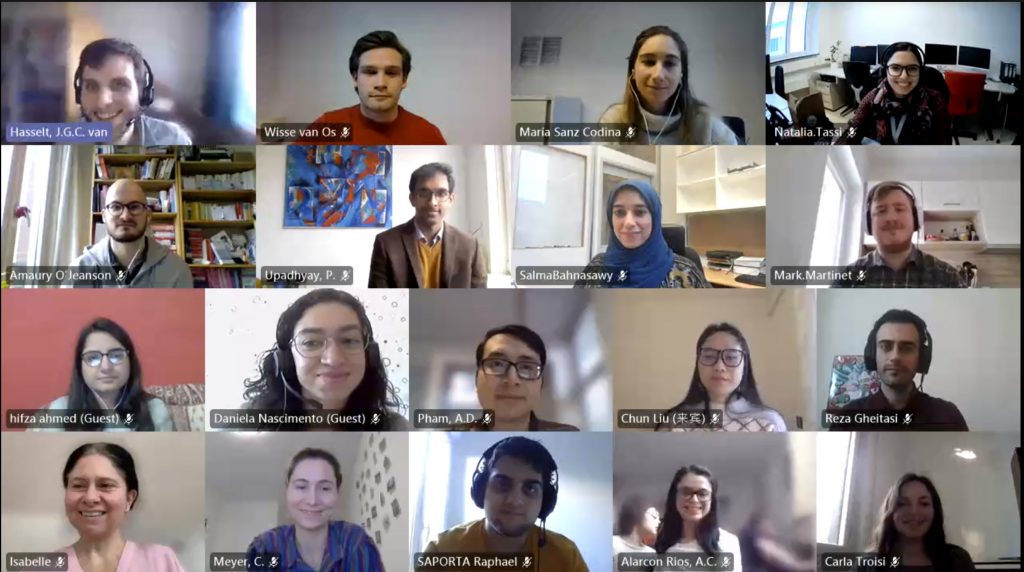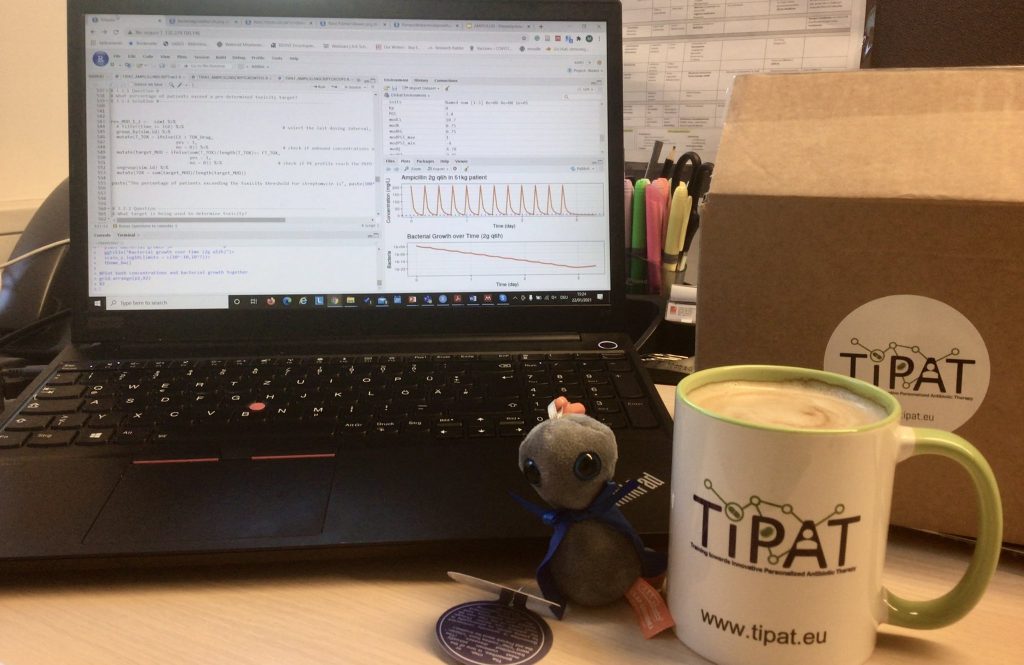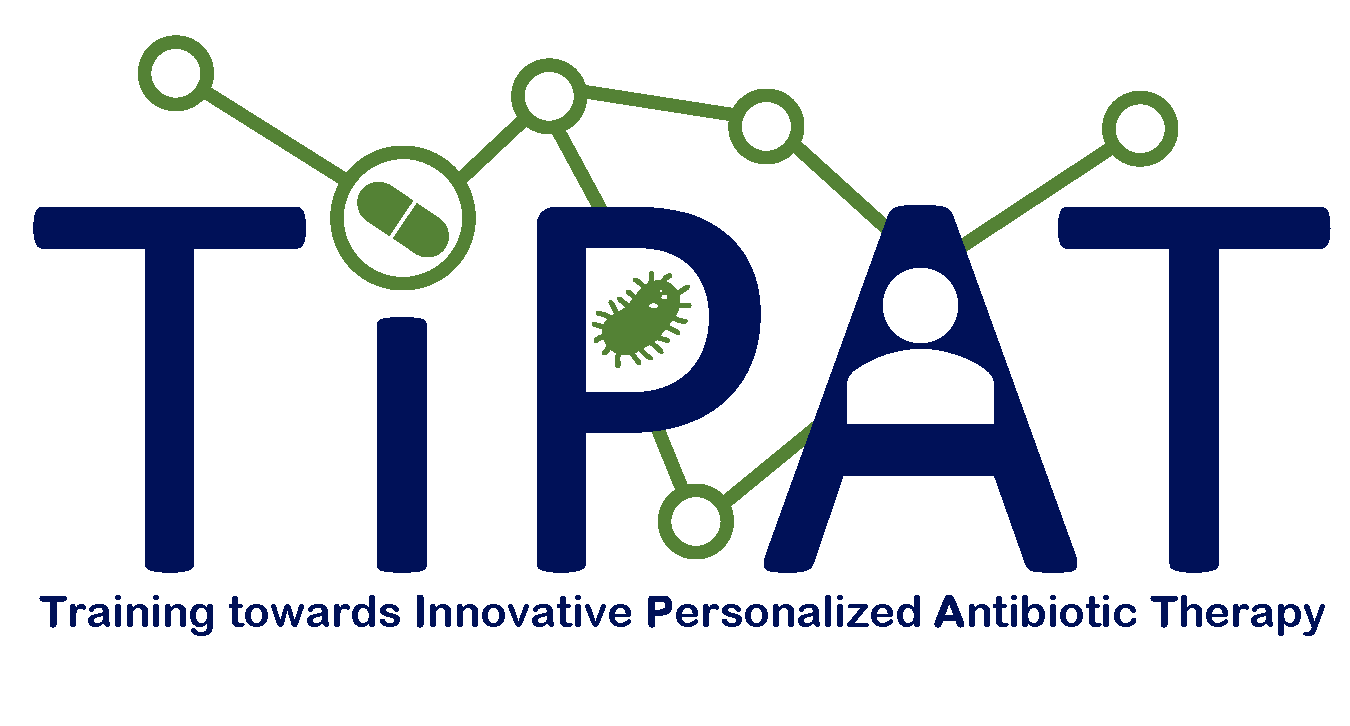FIRST TIPAT MEETING: THE WINTER SCHOOL

TIPAT Winter School was organized in January 2021 by the University of Leiden. The Winter School was the first opportunity for all of us, the ESRs and supervisors, to meet. It was held online but still was a very pleasant first get-to-know, Moreover, a TIPAT package to make us feel welcomed was send.
TIPAT bases its research on three complementary relationships: antibiotics and host; antibiotics and bacteria; bacteria and host. Therefore, during the Winter School, we had useful introduction lectures about the different research fields included in TIPAT. We followed foundational courses in immunology, microbiology, clinical pharmacology, quantitative modelling, and open science. Moreover, we also had a course in R including an introductory group exercise to PK/PD modelling to optimize dosing schedules. Finally, a surprise keynote lecture by Dr. Dan Hartman from the Bill and Melinda Gates Foundation was included. At the end of each day, we had social events to better get to know each other: speed dating, pub quiz, online games, and international lunch!
 My favorite part of the Winter School was the group assignment. The goal was to get familiar with the use of R and of PK/PD model-based simulation to optimize antibiotic treatment regimens in special patient populations. Population PK models can be used to simulate drug concentration-time profiles for different dosing schedules. Therefore, it can be used to derive optimized dosing schedules. With my group, we evaluated how currently used ampicillin dosing schedules perform, and proposed how the dosing schedule can be improved, also by considering the tissue concentrations and toxicity. This assignment helped me so much since it was very linked to my project: I want to develop a PK model to predict the tissue/plasma ratio of the drug exposure in patients with difficult to treat infections, and therefore optimize antibiotic dosing
My favorite part of the Winter School was the group assignment. The goal was to get familiar with the use of R and of PK/PD model-based simulation to optimize antibiotic treatment regimens in special patient populations. Population PK models can be used to simulate drug concentration-time profiles for different dosing schedules. Therefore, it can be used to derive optimized dosing schedules. With my group, we evaluated how currently used ampicillin dosing schedules perform, and proposed how the dosing schedule can be improved, also by considering the tissue concentrations and toxicity. This assignment helped me so much since it was very linked to my project: I want to develop a PK model to predict the tissue/plasma ratio of the drug exposure in patients with difficult to treat infections, and therefore optimize antibiotic dosing
I have been very happy to network with all the integrands of TIPAT and to find out that we are very complementary. I could realize how TIPAT covers very well all the stages of research, from preclinical to translational and clinical research. Moreover, it includes researchers from many different countries. Personally, as a clinician, being actively involved in the research development of future antibiotic optimization tools makes me extremely proud and excited.
Thanks to this first TIPAT Winter School I have already benefited from this network and learned the basics about complementary disciplines. The knowledge provided during these days, especially in Immunology, Clinical Pharmacology and Quantitative Modelling, has been very helpful since my project has a multidisciplinary approach. In conclusion, during this TIPAT Winter School, I made very valuable connections with the other ESRs and supervisors and learned the foundations of the disciplines on which my research is based.
Maria Sanz Codina, ESR1
Clinical Pharmacology Department
Medical University of Vienna
